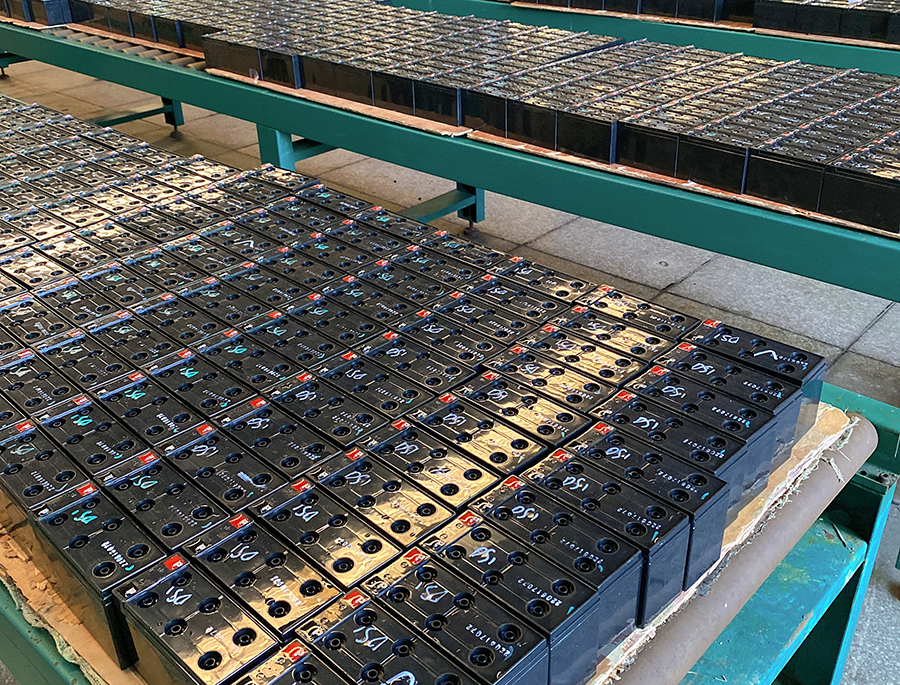Industry news
China battery giant CATL would build U.S. plant if Trump allows it, Reuters reports

CATL, the world’s top battery maker, will consider building a U.S. plant if President-elect Donald Trump opens the door to Chinese investment in the electric-vehicle supply chain, the company’s founder and chairman, Robin Zeng, told Reuters.
“Originally, when we wanted to invest in the U.S., the U.S. government said no,” the Chinese billionaire said in an interview last week. “For me, I’m really open-minded.”
Chinese electric-car and battery makers have been shut out of the U.S. market through a variety of protectionist trade measures supported by both Democrats and Republicans including Trump, who launched a broader trade war with China during his first presidential term starting in 2017. China’s EV and battery firms, which are heavily subsidized by its government, have been targeted with some of the steepest trade barriers out of competitive and national-security concerns.
Chinese-made batteries do not qualify for consumer EV subsidies enacted during the Biden administration, which also moved to block any vehicle with Chinese connected-car technology. Chinese EV imports are subject to a 100% tariff, an effective ban.
A Republican bill opposed by the Biden White House would go further, limiting EV-purchase incentives for cars powered by Chinese battery technology licensed by American companies such as Ford and Tesla.
The trade barriers have blocked some of the world’s leading battery and EV companies, including CATL and its largest battery competitor, BYD, which might otherwise help accelerate the U.S. EV transition. Unlike CATL, BYD also makes electric cars and now rivals Tesla for the global EV sales lead.
Trump wants to prevent Chinese auto imports but has said he remains open to Chinese automakers building vehicles in the United States. Trump told Reuters in an August interview: “We’re going to give incentives, and if China and other countries want to come here and sell the cars, they’re going to build plants here, and they’re going to hire our workers.”
Such comments have kept Zeng interested in a U.S. expansion for CATL. “I do hope that in the future they are open to investments,” he said.
Zeng’s comments were the first made by a major Chinese supplier to U.S. automakers since Trump’s victory in the Nov. 5 election. The Trump campaign did not immediately respond to a request for comment on Tuesday.
CATL has restricted its presence in the U.S. market to battery-production licensing deals. Ford is opening a Michigan plant to build low-cost lithium-phosphate batteries under a licensing deal with CATL for its Mustang Mach-E and F-150 Lightning pickup.
Tesla has a similar deal to license CATL technology for battery production in Nevada. That operation is expected to launch in 2025, a person with knowledge of the matter told Reuters. The timing of the launch has not been previously reported.
Zeng, who spoke to Reuters on Thursday near CATL’s headquarters in Ningde, in southeastern China, said the Tesla licensing deal would allow CEO Elon Musk to focus its capital investment on artificial intelligence and autonomous vehicles.
CATL is a major supplier to Tesla for the EV maker’s Shanghai factory, Tesla’s largest and most profitable.
Zeng, who met Musk when he visited Beijing in April and has talked to him often, said he agreed with the Tesla founder’s view on the potential for AI-powered autonomous-vehicle technology.
Tesla’s self-driving tech relies solely on cameras and AI in hopes of building affordable autonomous vehicles that can sell in large volumes. Its competitors are mostly building more expensive vehicles with layers of redundant technology, for safety, and using them to operate taxi or delivery services.
“He’s all in,” Zeng said of Musk’s strategy. “I think it’s a good direction.”
But Zeng said he had told Musk directly that his bet on a cylindrical battery, known as the 4680, “is going to fail and never be successful.”
“We had a very big debate, and I showed him,” Zeng said. “He was silent. He doesn’t know how to make a battery. It’s about electrochemistry. He’s good for the chips, the software, the hardware, the mechanical things.”
Musk and Tesla did not immediately respond to a request for comment on Tuesday.
Zeng said he had also asked Musk about setting unrealistic timelines for the rollout of new vehicles or technologies at Tesla. He said Musk had told him that he wanted to motivate and focus Tesla staffers and that anything beyond a two-year time frame might as well be “infinity.”
“His problem is overpromising. I talked to him,” Zeng said. “Maybe something needs five years. But he says two years. I definitely asked him why. He told me he wanted to push people.”
Musk last month promised to deploy fully autonomous versions of Tesla’s Model 3 and Model Y next year in Texas and California, and to release a two-seat “Cybercab” robotaxi, with no steering wheel or pedals, in 2026. The prediction prompted skepticism from investors who have heard Musk promise self-driving Teslas for about a decade.
Zeng did not refer to any particular unfulfilled promise by Musk, but said: “He probably himself thinks it needs five years, but if you believe him when he says two years, you will be in big trouble. The direction is right.”
CATEGORIES
CONTACT US
Name: Catherine zhong
Mobile:+86 18802012393
Tel:+86 18802012393
Whatsapp:+86 18802012393
Email:catherine@orifeenergy.com
Add:311, Building 3, 11 Dalingshan Road Guangzhou, Guangdong, China

